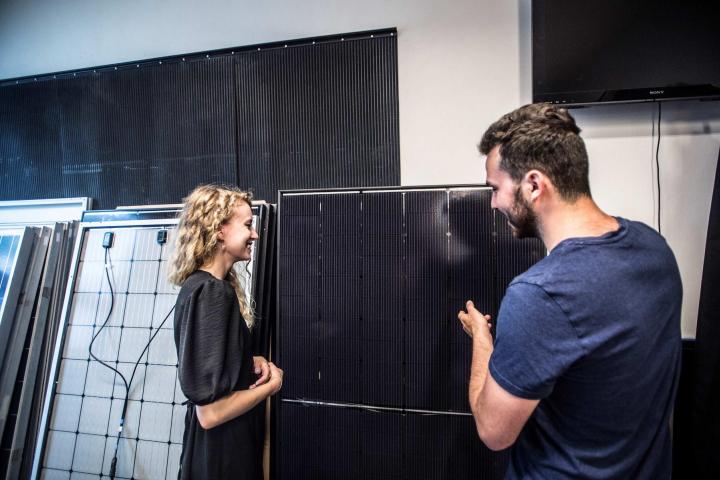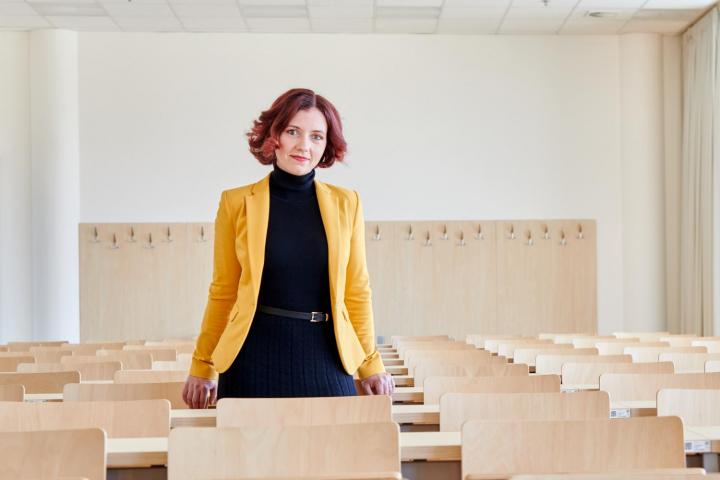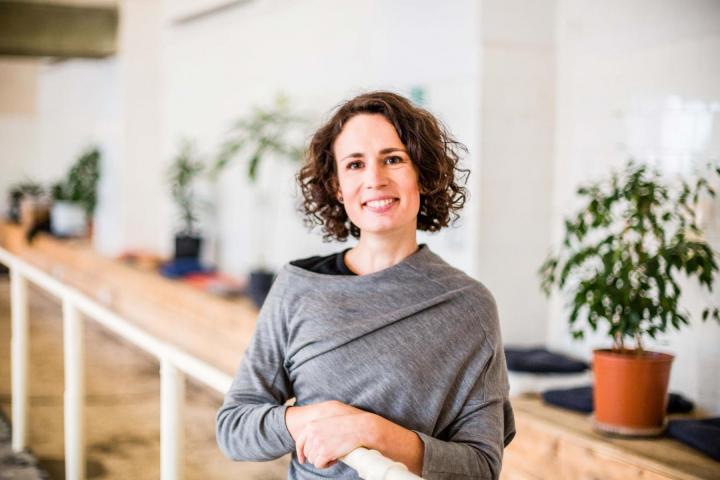"The energy sector has a major impact on the lives of citizens and, by extension, on society as a whole. Mapping the motivations of investors in photovoltaics, describing their behaviour and outlining their views can, among other things, help to choose more appropriate and effective measures to support renewable energy in Czech households. Emphasis on clean and renewable sources is generally in line with the strategic plan of the European Union and the Czech Republic to phase out coal mining," says Ing. Michaela Makešová, who conducted the research as part of her dissertation.
Research of Ing. Michaela Makešová and Dr. Michaela Valentová from the Department of Economics, Management and Humanities at FEL CTU carried out in cooperation with Mgr. Matouš Pilnáček from the Institute of Sociology of Czech Academy of Science showed that people are influenced by four basic factors of motivation - economic, ecological, technical and social. "Investors consider not only the financial aspect of an investment, but also other aspects," says Mgr. Matouš Pilnáček, adding: "Interestingly, however, investors differ in the weight they give to which aspect. Our analysis has shown that there are six groups that have these factors in different combinations."
Ecologists (6% of PV investors, i.e. 141 respondents)
The first group of investors in photovoltaic power plants are the so-called Ecologists, who are typically interested in reducing environmental impacts. It is the ecological motivation that is decisive for them when acquiring PV. They show higher education and higher family income, which exceeds 80 thousand crowns per month. As a rule, people under 45 years of age fall into this group. At the same time, they are interested in innovation for a long time. Up to twice as often as representatives of other groups own an electric car. Their primary source of information about photovoltaics is the Internet.
Pragmatic ecologists (22% of PV investors, i.e. 580 respondents)
The characteristics of the Pragmatic Ecologists group are in many ways the same as those of the Ecologists. However, apart from the above description, they differ fundamentally in one feature: although they have been trying to mitigate negative environmental impacts for a long time, this in itself is not a sufficient motivation for them to acquire a PV plant. For them, it is only in combination with economic motivation that it becomes decisive. The same is true in reverse: economic reasons for installation alone would not convince them. However, like the Ecologists, they believe that small installations are the way to develop renewable energy in the country.
The Economists (16%, i.e. 403 respondents)
The reasons for the Economists group to purchase PV are purely economic. They do not believe so much that moving towards renewable energy makes sense. Moreover, they are the only group defined as having a noticeable influence of city size. In fact, economists generally live in larger towns and cities, and are completely absent in rural areas. Economists are middle-income earners and are found in all age groups and with all types of education. In their opinions they agree in many respects with the self-sufficient and Technologists, as they do not believe so much in the state's strategy of replacing fossil resources with renewable ones and in the fact that the installation of photovoltaics has a positive image in Czech society.
The Self-sufficient (17% of PV investors, i.e. 456 respondents)
As much technical and economic independence as possible is the decisive motivation of what the researchers call the Self-Sufficient PV Investor group. Their goal is to have their own energy source, to be independent from the system and the big energy players. To do this, they need tools, for example to measure energy production. They enjoy monitoring production and consumption and keep an eye on their finances. Their focus on the financial side is also different from the group of so-called Technologists. A typical representative of the Self-sufficient group is a person between 56 and 65 years old, whose financial income is rather higher.
The Technologists (5% of PV investors, i.e. 123 respondents)
The group of Technician investors is generally dominated by males. Some of them could be called DIYers. They are typically higher income families. Their reason for acquiring PV is their interest in innovation and technology. All ages and all types of education are represented. They live mostly in villages and smaller towns.
The Undecided (33% of PV investors, i.e. 862 respondents)
The group called Undecided got its name because its representatives are not so strong in their opinions and motivations. Most of them have confidence in government policy and work more than other groups with different sources, according to which they subsequently form their own opinions. They are not sure if they will ever get an electric car. As a rule, these are people over 65 years of age. Compared to other groups, representatives of this group have lower education, most often secondary education.
The general conclusions for all groups are that when it comes to energy storage, investors most often choose a combination of panels with batteries or hot water storage. Two thirds of respondents either own or plan to buy an electric vehicle. The main source of information for respondents is the internet, and for some investors, also expert advice and consultancy groups.
Michaela Valentová adds: "The results of the research can contribute to the design of measures to support the development of renewable energy sources. At the same time, we see the need to place these findings in the broader context of addressing the overall energy needs of households."
About the research
The research is unique in several aspects. A major contribution is the interdisciplinarity and the overlap of the study into the socio-economic field. This was supported, among other things, by cooperation across research institutions - researchers from FEL CTU collaborated with Mgr. Matouš Pilnáček from the Institute of Sociology of the CAS.
The main survey was conducted in February 2022 with a sample of 2,500 respondents. As most PV installations at that time were financed through the New Green Savings Programme, the questionnaire was sent through the State Environmental Fund to all beneficiaries of the subsidy who had used it to purchase PV panels (about 15,000 email addresses).
The data collection for this study took place just before the start of the war in Ukraine, which had an impact on the energy sector, among other things. The researchers therefore intend to repeat the survey soon to see how the behaviour and motivations of PV investors have changed since then.
Profiles of researchers
Dr. Michaela Valentová works as a researcher at Faculty of Electrical Engineering. Her research focuses on the promotion of energy efficiency and renewable energy measures and financing. She leads projects focusing on equitable transformation, energy community development and decarbonisation of the building heating sector. She also works as an external expert for the European Commission and is a visiting fellow at the International Sustainable Finance Center. She has also worked at The Bennett Institute for Public Policy at the University of Cambridge. In her previous analytical work, she has led and contributed to a number of international projects on energy services or product design. She holds a Master's degree from the Central European University in Budapest and a PhD from the Czech Technical University in Prague.
Ing. Michaela Makešová is a researcher at the Department of Economics, Management and Humanities of FEL CTU in Prague. Her work focuses on the implementation of renewable energy sources and its impact on the system, energy markets and, last but not least, on energy market participants. She works on projects focused on the analysis of the development of PV in households and the possibilities of energy communities. She graduated from FEL CTU in Prague with a specialization in Energy Economics and is currently working on her Ph.D. at FEL CTU in Prague.
You can find the brochure here: https://drive.google.com/drive/folders/1pjgsSHeTeeuye63IpZr1X6iC1jXeChDy?usp=sharing


